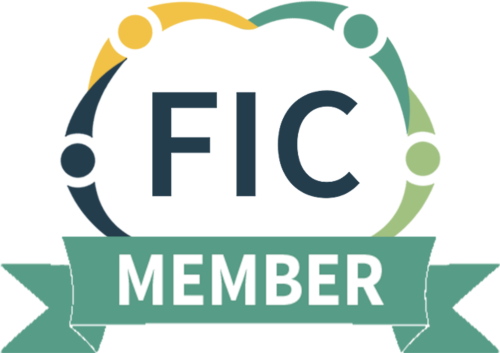Author: Chris Foraker
Published in Communities Magazine Issue #141
Throw It Against the Wall
Gandhi said something about life being an experiment. Experiments drive discovery. We gather the best information available, from books, stories, old people, previous experiments, and try something new in service to our thought dreams. “If my thought dreams could be seen they’d probably put my head in a guillotine.” Dylan is right: thought dreams are dangerous. I’m not suggesting the following is very dangerous. It’s actually quite ordinary—quite practical—just some observations from experiments with my own personal economy. But it does involve a process of dreaming, experimenting, and then observing—the stuff of creation. When we’re creating (or co-creating) our world instead of accepting our world, we do become empowered. An empowered people can be dangerous to disempowering tendencies.
Wal-Mart came to Cottage Grove, Oregon, in ‘94, convinced the city council to change local zoning laws, and got the go-ahead to build a 108,000-square-foot warehouse store. In 2006, desiring expansion, Wal-Mart applied for another zoning change that would permit the construction of a 160,000-square-foot super center. Public hearings were called, yes/no buttons made, positions taken, and after six hours of testimony spanning three days, not much was surprising: well-dressed corporate lawyers; polarized atmosphere; emotional testimonies from those for and those against. It didn’t take me long to put my anti-zoning-change sentiments into words which I delivered unemotionally in the fog of a waning fever. The hearing continued on at a boring pace, reaching a peak of monotony during the testimony of my fellow “againsts,” whose collective voice became tortuously redundant and, I hate to say it, a bit self-indulgent.
The highlight of the public hearing for me was the testimony of the “fors.” They helped exercise my internal sound receptors of empathy that, on occasion, allow me to pull out of the emotive mud of a polarized landscape and hear the concrete needs of “the other.” What I heard coming from the “other side” was I’m poor, whether from low-paying work or a fixed income, and I depend on low-cost goods to get by. I could understand that. I can also, by all conventional standards, be considered poor. I make between $200 and $400 dollars a month, heat my home and cook with wood, cut my costs when I can. I don’t have running water. I’m not subsidized by wealthy parents. I live in a school bus.
An amusing tension arose. Here I am in much the same predicament as many from Clan Super Size, but instead of a desperate sense of scarcity and need for low-cost goods, I feel embraced by a world of hope and abundance. I feel secure while others feel vulnerable. I feel my needs are taken care of while others feel life is too expensive. What was the difference? This tension sparked observation.
Sharing the Surplus, Natural Giving, and the Community Context
Several months ago I was in need of space to park my bus. I wanted to be two miles outside of town, hopefully near the bike path with the potential to run an extension cord from a garage or outside outlet for electricity. The deadline for moving was past and I was starting to feel anxious to unburden my generous host. That Thursday during the Cottage Grove community’s weekly social gathering—a mix of homegrown goods, tight spacing, and free locally made wine—I was introduced to a friend of a friend. After some friendly formalities, the subject of pursuit came up and she promptly offered me a space to park my bus: two miles outside of town, across from the bike path, near an electrical outlet. In return she asked for dry firewood and help with projects around the property.
This event was a first glimpse into a new way of looking at my personal economy. Over time, these same types of exchanges replayed over and over, generating a pattern. Slowly, words came to describe the pattern, not complete but like the first rough sketches of a living document. At its most fundamental level, it is members of a community sharing their surplus in the service of each others’ needs. One might call it a needs-based economy.
Permaculture teaches us to share the surplus. When we give away our surplus we can give it joyfully because, by definition, it is extra. It is not an act of charity where we create personal scarcity, but an act of sharing abundance. Sharing our surplus is as natural as giving away two-day-old baked goods destined for the compost, cuttings from a prolific raspberry patch, or squash from a bountiful harvest. When we receive a gift of surplus we can do so with dignity because we are confident we are not receiving more than can be comfortably given.
Marshall Rosenberg reminds us that giving to someone in the service of his or her need is satisfying. To illustrate this idea, he suggests recalling the last time we helped fulfill someone’s need, thinking on it for a moment and noticing how we feel. This exercise, as he describes, always produces smiles and satisfaction the world around.
These ideas, though complete in their own right, are most satisfying when practiced in the context of community. Community can be understood as an intertwined latticework of people connected by a shared place and/or shared aspirations. Sharing our surplus and giving in the service of each others’ needs works well in community because a community is a cooperative project that gives back. Each individual act of giving is seen in relation to and as a part of a greater whole. We don’t give aimlessly in a fragmented social landscape but intentionally and joyfully in the service of a larger project. When we give within a community we also feel a sense of security—almost like a smart investment—because a community reciprocates and responds, based on its humanity, to our changing needs. A group of people is far more resourceful than one alone.
As winter approached I was in need of space. My host had a surplus of space and was in need of a certain type of skill, which I was able to provide. Since living at the two-mile marker I have brought her dry firewood, helped paint a wall, remove a shelf, unclog a drain, clean junk from the yard, plant trees, and landscape. Going into spring our agreement has been fruitful and rewarding.
Living in a Needs-Based Economy
The willingness to exchange goods and services directly is essential to a needs-based economy because it changes the way we see the world. When we begin looking at our life as a mosaic of needs rather than a system of alienating labor and consumption, we transcend currency and put ourselves in touch with the abundance generated by an entire community.
It is common for someone to have the following thinking: “I need money so that I can buy the things I lack.” This line of thinking is limiting and internally conflicting. It disconnects us from what we actually want and calls on a disempowering currency to mediate between us and our dreams. Instead, if we are able to envision our needs without currency, we open ourselves to the abundance of an entire community’s surplus facilitated by people’s tendency towards natural giving.
As winter arrived in Oregon, I soon discovered that living in the equivalent of a giant metal mailbox could be quite cold. Heat became an immediate priority. Wood was the natural choice, so I began my search for a stove and dry firewood, both of which I thought would be difficult to find as those more prepared began to calculate the heating power of their now dwindling reserves. On some of the colder mornings, as I lay under five layers of insulation watching my breath take shape in taunting cold-smoke signals above me, I considered the stoves listed for sale on craigslist and the pick-up trucks of firewood waiting and ready for delivery in downtown Cottage Grove. But, as things became desperate, a friend of a friend offered his old wood stove, just the right size, being stored in an abandoned trailer outside of town. No one was using it so he said I could have it for at least the winter. After heating with kiln-dried, quick-burning, industrial forestry waste for a while, I received a pickup truck load of dry hardwood and fir from a family of land stewards. So for most of the winter I stayed mostly warm.
By exchanging goods and services directly, we resist the tendency to do unfulfilling, alienating work. Robert Heilman describes life as an industrial logger in rural Oregon: “Alienation is an occupational disease, one that afflicts each of us when we sell our time for money. It brings a numbness of spirit that makes all sorts of horrible situations seem routine.”
Instead, when we exchange directly, both giver and recipient benefit. In giving, we become connected to the act of creation, which is exhilarating. We once again become masters of our own time, liberated from the inevitable exploitation of a boss-wage system. Time becomes abundant and quality and joy can once again be incorporated into our work. Anything created by caring hands is infused with a uniqueness and life—easily seen in the difference between a modularized suburbia and a handmade home, or between a generic store-bought card with a “birthday check” enclosed, and a gift made with care and attention. In this way we become involved in each other’s lives and allow parts of our internal and external landscapes to be shaped by our neighbors’ artistic and clever natures. By exchanging directly we strengthen a culture of natural giving and shared surplus.
The thought of working for a wage to purchase a stove and cord of firewood now seems silly when faced with the possibilities available in a connected community. When the rains stop, I will gladly replace the amount of wood that was given to me or perhaps double the amount or triple, or perhaps I’ll just be helpful in some other way needed by the generous givers. When living within an economy based on joyful giving, two doesn’t always equal two, but instead we are freed to give equal to the immense gratitude we feel upon receiving a gift from the heart.
Freed to Serve
I volunteer between eight and 20 hours a week for Cottage Grove’s low-powered community radio station KSOW, often doing the small and mundane things that just need a body and half a brain to complete. I do this joyfully because it contributes to the larger community project, the radio station needs it, and I enjoy music. I have the time to volunteer largely because my needs are efficiently satisfied by an abundant community. The community has freed me to serve the community. I’m not strapped with the high everyday costs of my low-income brethren, but have fortunately marginalized, with the power of community, the need for US currency in my life. I work between 10 and 20 hours a week for bread money, most of which goes to food and the bus remodeling project. This abundance of time has allowed me to explore those things which make me feel most alive. And an economy that helps people come alive is an economy we desperately need.




















